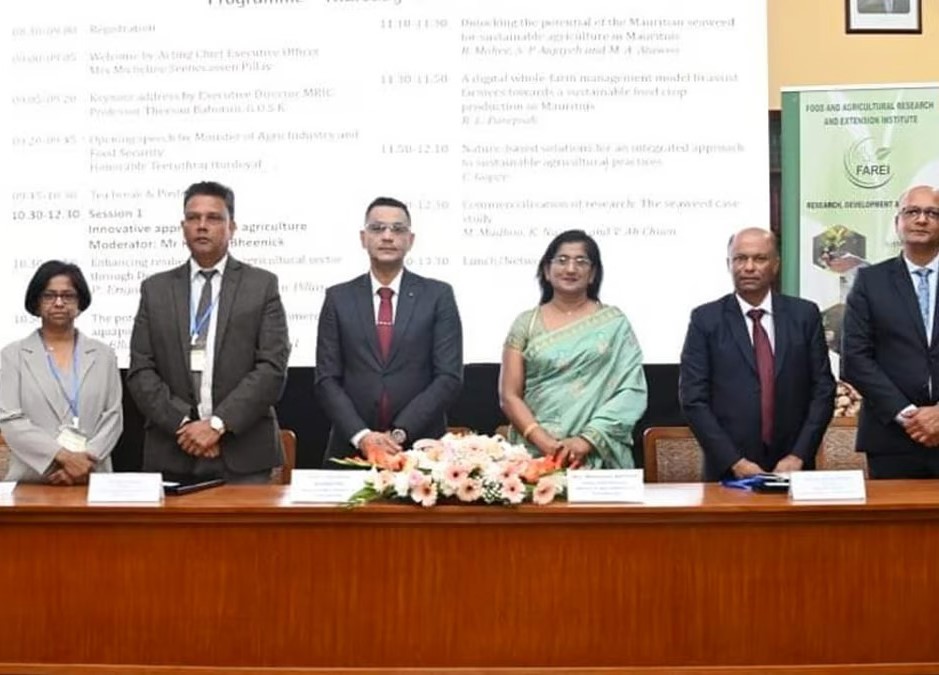The Aim
The goal is to promote resilience in food production, which can also aid in addressing the impacts of climate change within the agricultural industry. FAREI had organised a conference to educate local planters about the advantages of smart agriculture and how they can benefit from that.
Smart Agriculture
The Minister of Agribusiness and Food Security, Vikram Hurdoyal, is urging local food producers to embrace smart agriculture, meaning the integration of technology into their production processes, with the goal of ensuring a stable future for the agricultural industry. He made this announcement during the second iteration of the Agricultural Science Exchange Forum (ASEF 2) on Thursday, October 12th.

Benefits of Smart Agriculture
Smart agriculture provides numerous benefits for planters by utilizing technology to optimize crop production, improve efficiency, reduce costs, and minimize environmental impact. By implementing tools such as sensors, drones, and data analytics, planters can make informed decisions regarding irrigation, fertilization, pest control, and overall farm management. This results in increased yields, better quality crops, and ultimately higher profits for planters while also promoting sustainability and conservation of resources.
Approaches to Implement Smart Agriculture
To ensure that local producers benefit from the various initiatives in favor of Smart Agriculture, Micheline Seenevassen Pillay, interim director general of the Food and Agriculture Research and Extention Institute (FAREI), explained that several research has been carried out. Based on the results of this research, FAREI wishes to expand practices that will improve the variety of agricultural production. This approach also includes the implementation of biotechnology, which can also help make crops more resilient to climate change, she said. Through the application of biotechnology in smart agriculture, farmers can utilize advanced techniques such as genetic engineering, precision farming, and bioinformatics to optimize crop growth, develop disease-resistant varieties, and efficiently manage water and nutrient resources. Other way of smart Agriculture is the use of drones.


